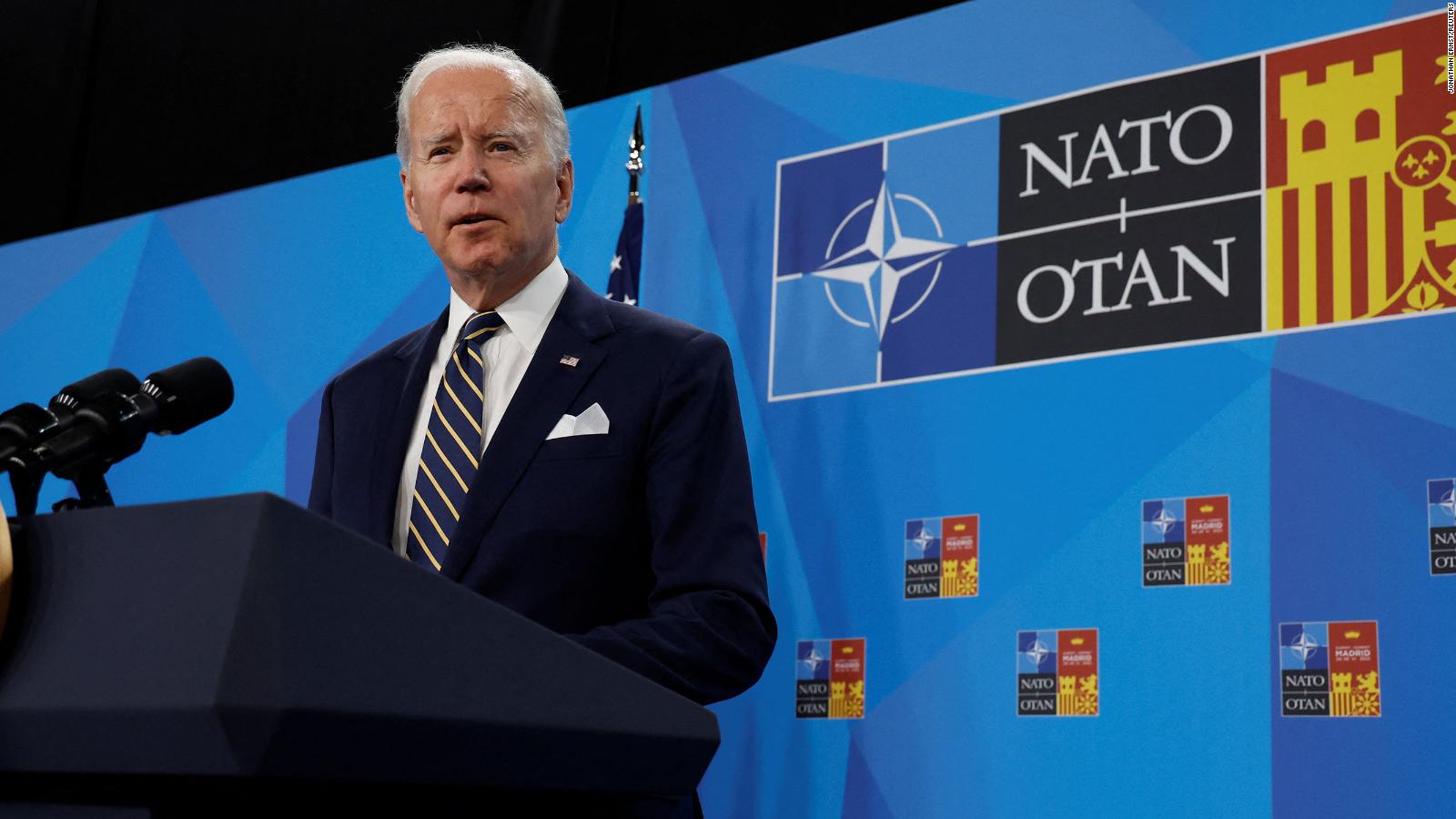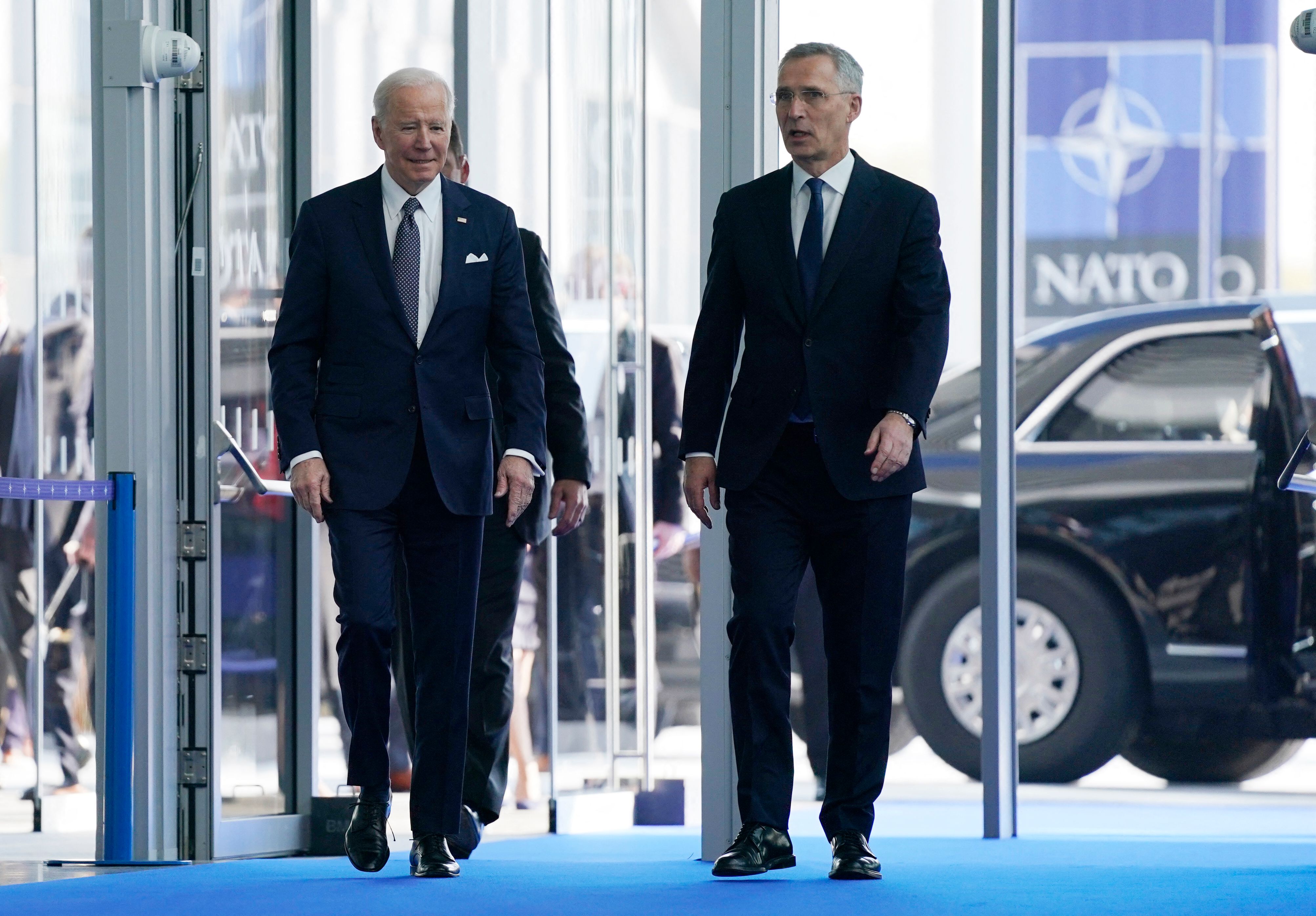Biden’s Commitment to NATO
Biden nato –
President Biden has made a strong commitment to NATO, viewing it as a vital alliance for ensuring the security of the United States and its allies. He has taken several steps to demonstrate his support for NATO, including increasing US troop levels in Europe, participating in NATO exercises, and working to strengthen the alliance’s capabilities.
Biden’s recent reaffirmation of NATO’s Article 5 collective defense commitment has been met with mixed reactions. Some see it as a necessary step to deter Russian aggression, while others worry that it could lead to a wider conflict. Biden has argued that the alliance is “the cornerstone of our collective security” and that it is “more important than ever” in light of Russia’s actions in Ukraine.
Biden’s NATO comments come as the alliance is facing a number of challenges, including the rise of China and the ongoing conflict in Ukraine. It remains to be seen how Biden’s leadership will shape NATO’s future.
Biden’s Actions to Support NATO
- In 2021, Biden announced that he would increase the number of US troops in Europe by 5,000, bringing the total number of US troops in Europe to 100,000. This increase was seen as a sign of Biden’s commitment to NATO and its members.
- Biden has also participated in NATO exercises, including the Defender Europe 2021 exercise, which was the largest NATO exercise in decades. Biden’s participation in these exercises demonstrated his commitment to NATO and its mission.
- Biden has also worked to strengthen NATO’s capabilities, including by supporting the development of new technologies and capabilities, such as the NATO Command and Control System (NC3S).
Implications of Biden’s Commitment to NATO, Biden nato
Biden’s commitment to NATO has had a number of implications for the alliance’s future. First, it has helped to reassure NATO members that the United States is committed to the alliance and its security. Second, it has helped to strengthen NATO’s capabilities and readiness. Third, it has helped to deter potential aggressors from taking action against NATO members.
NATO’s Role in the Biden Administration’s Foreign Policy: Biden Nato

The North Atlantic Treaty Organization (NATO) is a crucial component of the Biden administration’s foreign policy strategy. The alliance, which was founded in 1949, is based on the principle of collective defense, and its members have pledged to come to the aid of any member that is attacked.
The Biden administration has reaffirmed the United States’ commitment to NATO and has taken steps to strengthen the alliance. In June 2021, Biden attended the NATO summit in Brussels, where he met with other leaders of the alliance to discuss a range of issues, including the ongoing conflict in Ukraine. Biden also announced that the United States would increase its military presence in Europe, a move that was seen as a signal of the Biden administration’s commitment to the alliance.
Challenges and Opportunities for the Biden Administration
NATO presents both challenges and opportunities for the Biden administration. One of the challenges is the ongoing conflict in Ukraine. Russia’s annexation of Crimea in 2014 and its subsequent support for separatists in eastern Ukraine have raised concerns about the security of NATO’s eastern flank. The Biden administration has worked to support Ukraine and to deter further Russian aggression, but the conflict remains a source of tension between NATO and Russia.
Another challenge for the Biden administration is the rise of China. China’s growing military power and its increasing assertiveness in the Asia-Pacific region have raised concerns among NATO members. The Biden administration has worked to strengthen NATO’s partnerships with countries in the Asia-Pacific region, and it has also called on China to abide by international law and to respect the sovereignty of other countries.
Despite these challenges, NATO also presents opportunities for the Biden administration. The alliance provides a forum for the United States to coordinate with its allies on a range of issues, including security, trade, and climate change. NATO also provides a platform for the United States to promote its values and to support democracy and human rights around the world.
Examples of NATO’s Role in Advancing Biden’s Foreign Policy Goals
NATO has played a key role in advancing the Biden administration’s foreign policy goals. For example, NATO has been involved in the ongoing conflict in Ukraine. NATO members have provided military and financial support to Ukraine, and they have also imposed sanctions on Russia. NATO has also worked to deter further Russian aggression, and it has conducted military exercises in the Black Sea and the Baltic Sea.
NATO has also played a role in the Biden administration’s efforts to counter China’s growing military power. NATO members have increased their military presence in the Asia-Pacific region, and they have also worked to strengthen their partnerships with countries in the region. NATO has also called on China to abide by international law and to respect the sovereignty of other countries.
In addition to these specific examples, NATO has also played a broader role in supporting the Biden administration’s foreign policy goals. The alliance has provided a forum for the United States to coordinate with its allies on a range of issues, including security, trade, and climate change. NATO has also provided a platform for the United States to promote its values and to support democracy and human rights around the world.
The Future of NATO under Biden’s Leadership

The election of Joe Biden as President of the United States has significant implications for the future of NATO. Biden has been a strong supporter of NATO throughout his career, and he has pledged to revitalize the alliance. He has also emphasized the importance of NATO in addressing the challenges of the 21st century, such as terrorism, cyber warfare, and climate change.
One of the challenges that NATO faces in the coming years is the rise of China. China is rapidly expanding its military, and it is becoming increasingly assertive in the Asia-Pacific region. This poses a challenge to NATO, as the alliance has traditionally focused on Europe. NATO will need to find ways to adapt to the changing geopolitical landscape and to ensure that it remains relevant in the 21st century.
Another challenge that NATO faces is the ongoing conflict in Ukraine. Russia’s annexation of Crimea and its support for separatists in eastern Ukraine have strained relations between NATO and Russia. NATO will need to find ways to deter further Russian aggression without provoking a wider conflict.
Despite these challenges, NATO remains a vital alliance. It is the only organization that can bring together the United States, Europe, and Canada to address the security challenges of the 21st century. NATO will need to adapt to the changing geopolitical landscape, but it will continue to play an important role in ensuring the security of its members.
Recommendations for NATO
NATO can adapt to the changing geopolitical landscape by:
- Increasing its focus on the Asia-Pacific region.
- Developing new capabilities to address the challenges of the 21st century, such as cyber warfare and climate change.
- Strengthening its partnerships with other international organizations, such as the United Nations and the European Union.
- Continuing to engage with Russia, despite the ongoing conflict in Ukraine.
Biden’s address to NATO leaders was a historic moment, marking the alliance’s 70th anniversary. The speech was delivered at the Mellon Auditorium , a grand Beaux-Arts building that has hosted countless important events over the years. Biden’s speech focused on the importance of unity and cooperation within the alliance, particularly in the face of new challenges such as Russia’s aggression in Ukraine.